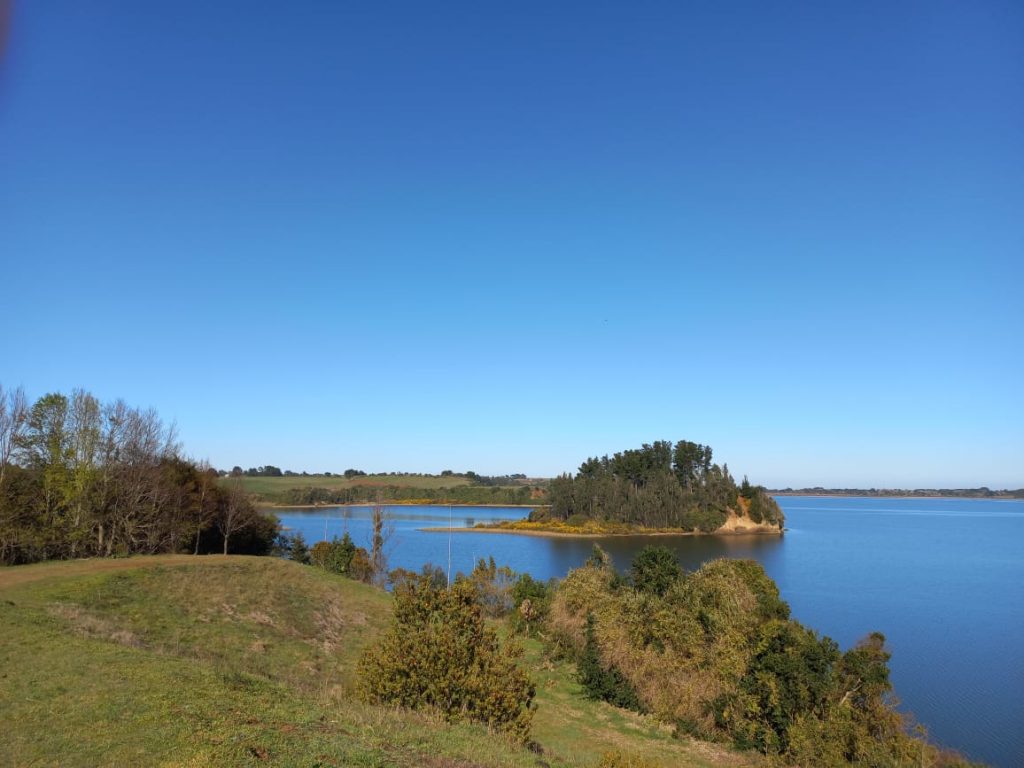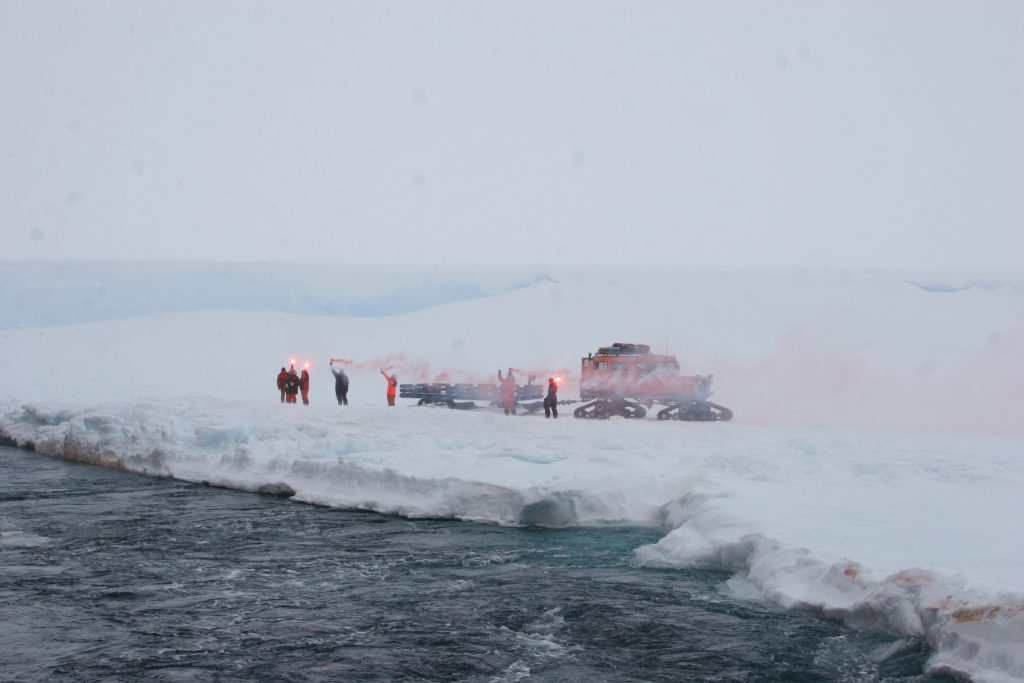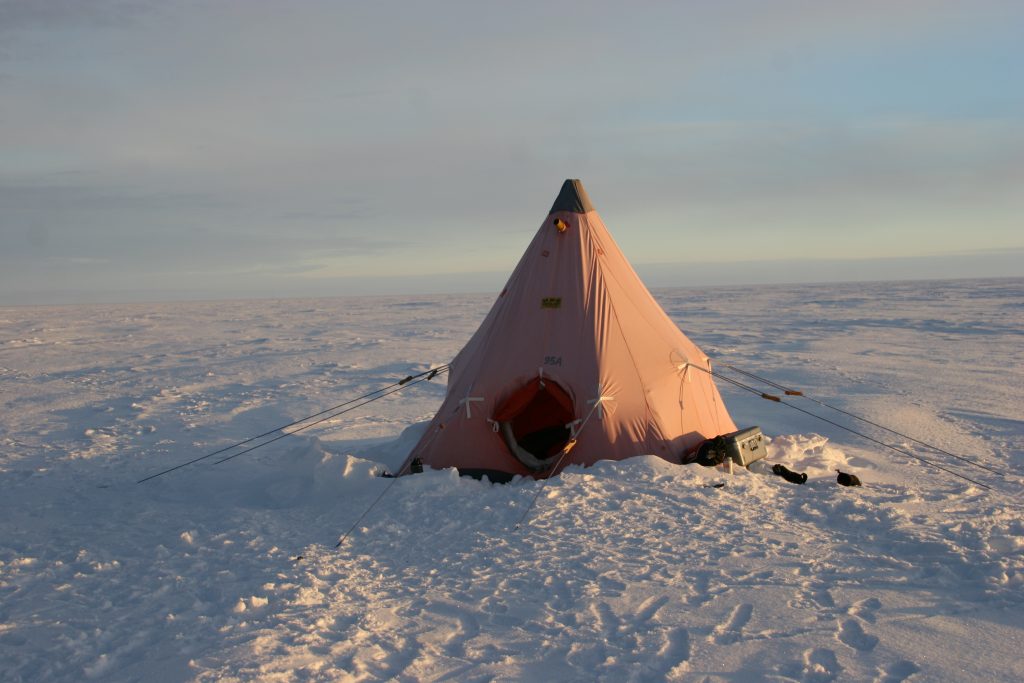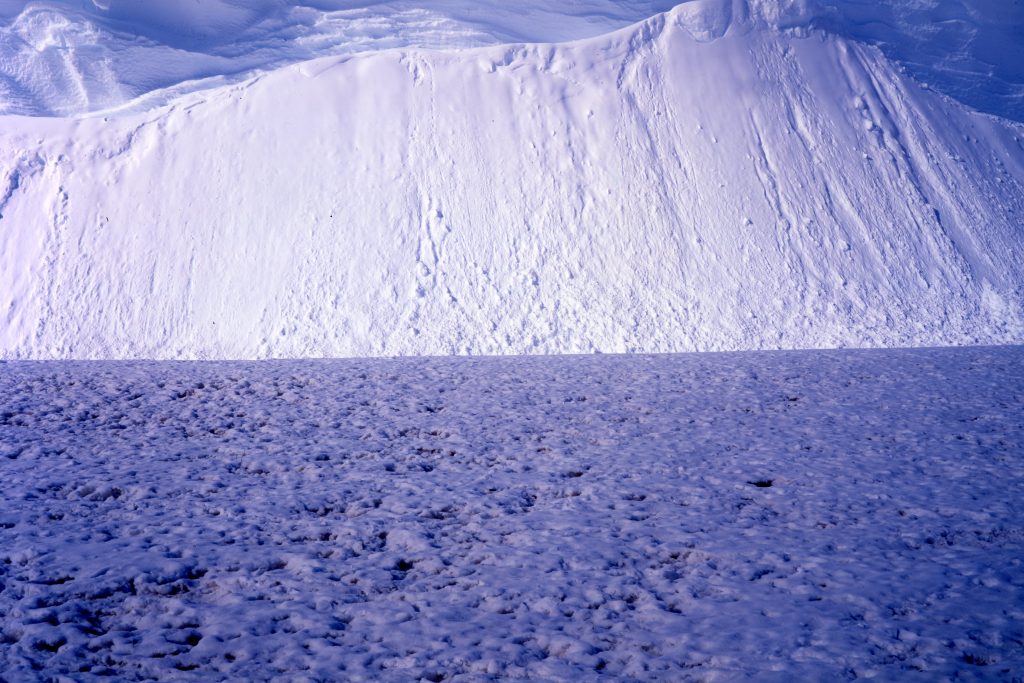The few thousand Khwe are one of the hunter-gatherer communities who until very recently lived by foraging in their ancestral hunting grounds in the north-eastern part of present-day Namibia. Some decades ago, these areas were declared a game reserve and since then the Khwe are no longer allowed to hunt; even the traditional gathering of bush food has been severely restricted. At the same time, farmers enter the former hunting-grounds of the Khwe with their cattle and destroy the natural resources – the water pans and the trees – both key to the livelihood of the Khwe community and the wild animals.
In the semi-arid land of the Khwe, tuuca orodji ‘rainwater pans’ are the most important water resources in the bush. Members of the Khwe community share their insights and worldviews on them in Khwedam with Living-Language-Land. In the video, a Khwe elder talks about these pans and their significance for the lives of the community. He also describes the threats to the existence of these pans by massive in-migration of farmers and their cattle, who destroy many of these water resources, which were essential for the traditional livelihood of the Khwe and which are still vital for the survival of the elephants and other wild animals in this area.

This work (text and photographs) is licensed under a Creative Commons Attribution-NonCommercial-ShareAlike 4.0 International License.
No word
‘There are no voices from this frozen continent. There are no people to speak for here, to break the silence. But the stillness above does not tell of the turmoil below. Who speaks for this place? Who will hear, who will listen, as ice tears itself apart?’
In 2008/09 I spent four months travelling in Antarctica as artist-in-residence with the British Antarctic Survey. Halley is the most southern British base accessible by ship through the Weddell Sea. It is the base which first detected the hole in the Ozone Layer and it continues to measure atmosphere, weather patterns and the shifting ice flows.
What that does not tell you is the amazing impact Antarctica has, or at least had, on me. It sounds like a cliché but I found the experience to be deeply profound and almost impossible to respond to creatively. Everything I tried seemed crass, lightweight in comparison to the vastness of a continent. A continent entirely without an indigenous community, just some temporary residents, mostly scientists trying to grapple with its complexities.
Unpopulated, this frozen, fragile continent is one of the fundamental building blocks of life on earth. It is meeting the importance of that directly and understanding the smallness of human life by comparison, that left such an impression. Yet it remains so vulnerable to human activity in other parts of the world.
Within a year of my return I had also spent time in Southern Greenland where there is an indigenous community. What stares you in the face immediately is just how quickly our landscapes are failing. Ice no longer freezes in the fjords, glaciers are rapidly retreating and a population which sustained itself for thousands of years can no longer survive without imports of food.

This work (text and photographs) is licensed under a Creative Commons Attribution-NonCommercial-ShareAlike 4.0 International License.
Learn more
- The British Antarctic Survey: Polar science for planet Earth
- The Halley Station webcam
- More about Neville’s Antarctic residency
Itrofillmongen
ITROFILLMONGUEN: Set of tangible and intangible elements central to Mapuche life, including spiritual energies or newen and the che or human person as indissoluble parts of the diversity of life that makes up each space or Lof that we inhabit.
For us as Mapuche, all the elements of nature are vital. In our worldview, everything is alive: soils, lakes, oceans, rivers, water springs, forests, wetlands, flora, and fauna, and together they allow us to live in balance and fullness. The balance of each of these elements on earth is intrinsically linked to the health and integral development of the Mapuche in the earthly and spiritual aspects. The survival of future generations depends on continuing to recreate and safeguard livelihoods coexisting with our natural environment; what we conceive of as Good-living or Kvmemongueleal. This will allow us to contribute to mitigating climate change while adapting resiliently.


This work is licensed under a Creative Commons Attribution-NonCommercial-ShareAlike 4.0 International License.
Learn more
- Read more about the Mapuche Environmental Association Budi Anumka
- Approaches to conservation by the Lake Budi communities
- Watch a short video about Budi Anumka’s work
Tamposati
The meaning of Tamposati, in English
My father says that Tamposati means that we are those born in the Tambo River, guardians and caretakers of our nature. For me, Tamposati is my home, I lived my childhood there, I had the joy of enjoying everything that nature provides.
Since I was a child, my parents taught me to sing. Today I reaffirm my cultural identity as an Asháninka woman singer and I make myself visible through my cultural expressions such as my clothing, my customs and my language, raising up our culture.
Detaching myself from my community was difficult. For this reason, every time I return, I try to attract tourists by doing free events to help us spread our customs. When I am within my community, I help with chores like cooking food from our fields such as yucca and cacao, fish from the river and many others.
Our culture is alive and so is our technique. I am proud to carry this legacy with me and to be able to share the beauty of our culture with the world. Preserving our language is important for future generations to enjoy our cultural richness.
El significado de Tamposati en español
Cuenta mi padre que Tamposati significa que somos los nacidos en el Río Tambo, guardianes y cuidadores de nuestra naturaleza. Para mí, Tamposati es mi casa, viví mi infancia ahí, tuve la dicha de disfrutar todo lo que la naturaleza provee.
Desde niña mis padres me enseñaron a cantar, de esa forma hoy yo reafirmo mi identidad cultural como mujer cantante Asháninka y me hago visible a través de mis expresiones culturales como son mi vestimenta, mis costumbres y mi lengua, dejando en alto el nombre de nuestra cultura.
Despegarme de mi comunidad fue difícil. Por eso, cuando regreso me preocupo por intentar atraer turistas que nos ayuden a difundir nuestras costumbres haciendo eventos gratuitos. Cuando estoy dentro de mi comunidad ayudo en los que haceres como cocinar los alimentos de las chacras como la yuca y el cacao, del río los pescados y muchas otras más.
Nuestra cultura se mantiene viva y nuestra técnica también. Estoy orgullosa de llevar conmigo este legado y poder compartir con el mundo la belleza de nuestra cultura. Conservar nuestra lengua es importante para que las siguientes generaciones gocen de nuestra riqueza cultural.

This work is licensed under a Creative Commons Attribution-NonCommercial-ShareAlike 4.0 International License.
Learn more
- Find Yessica Sánchez on Facebook
- Watch videos of Yessica’s singing on her YouTube channel and in the concert ‘Cholos Somos’
- CHIRAPAQ, Centre for Indigenous Cultures of Peru
Maloka
The ancestral and spiritual longhouse of the Murui-Muina, the Maloka, houses multiple families who cook and hang their hammocks in separate spaces. It is where the men chew coca and tobacco and where the women prepare sweet yuca, and where the elders gather to discuss and manage the affairs of the community. It is also where the dance of the Yadico (the Dance of Unity) takes place. In this process, which takes 15 days to prepare and lasts through the night, the Murui endeavour to heal the tensions and disagreements that arise within and between their communities. Resentment and discord are dissipated and the community re-weaves its harmony.
At the same time, the whole community gathers to strengthen and heal its intimate relationship with the natural world, and transmits the ancient wisdom and practices to their children and young people.
As one leader says:
We dance to achieve harmony with nature. In this sense, we bring the spiritual world closer to our people. The dance masters are knowledge-keepers who have an understanding of the environment and its changes; when they summon a dance, they are doing so for the health of our people, because these dances cure the illnesses that are present in our territories.
We dance to share our knowledge with our children and youth. These dances serve the purpose of uniting the people and families that are dispersed in our lands, thus strengthening solidarity and harmony in our communities.
Around 1,100 Murui-Muina people live in 5 settlements (resguardos) along the Caquetá river. Although their rights are officially recognised, deforestation is creating huge threats to their efforts to preserve their culture and way of life. Legal and illegal gold-mining, cattle ranching and the illegal drug trade are increasingly invading and fragmenting the forest on which they depend for water, food and healing herbs, while their young people are drawn into working for drug cartels and mining operations.
The fate of the forest, and the fate of the Murui-Muina people are intimately bound.

This work is licensed under a Creative Commons Attribution-NonCommercial-ShareAlike 4.0 International License.
Learn more
- Heirs of the Boa: a short documentary film that highlights the Yadico dance of the Murui-Muina people
- Colombian Television Programme ‘El Buen Vivir: Thinking and Acting Well’ (featuring the Murui people at 16:30)
- El Buen Vivir: a multiplatform project of the National Commission for Communication of Indigenous Peoples, CONCIP (Spanish: Comision Nacional de Comunicacion de los Pueblos Indigenas)
Siwa
From the waters emerged Mother Bachué, who gave birth to our people and taught us how to live well in our territory.
When father and mother created the world they wondered – who will take care of the world and teach to maintain order?
It was thus that they sang a new song and placed two new seeds in the womb of humanity, the lake from which Bachué and the primeval law of caring for creation emerged.
The lake is that portal from which possible worlds are born and where the spirit of struggle and natural order is strengthened. Our waters are creative centers, navels and connection paths that allow us to dialogue with other ways of thought.
Its waters sing stories, siwa speaks to us and reminds us of the womb, of the humidity of our first ‘mochila’ (cotton shoulder bag), our mother’s womb.
Returning to the lake is to reimagine ourselves, to look at ourselves in the mirror of its waters and recognize ourselves to organise our thoughts and spirit.
We are sons and daughters of the lake, our bodymind is nourished from its waters. It is a call to listen to the mother’s voice, to fertilize the thought that sows and sustains resistance
To organize ourselves around water as knowing and not as a raw material, it is vital to stand firmly before the capitalist thought that turns the lakes into resources, and to resist in the face of its absurd approach to land use that overflows and destroys the territory, blurring from our hearts the firm idea and conviction that the lake has life, spirit and purpose.
In your waters I was born, with them I found myself and I will take care of your flow to sow myself and be a daughter. I will walk so that you continue living, because in you the rhythm of the universe is manifested, because in you the balance is maintained and I am made of you. We will sing so that your pain heals, so that life is reborn again and the will of the peoples continues to be born to return to their law of origin.

This work is licensed under a Creative Commons Attribution-NonCommercial-ShareAlike 4.0 International License.
Learn more
- COLECTIVO DE EDUCACIÓN PROPIA PEDAGOGÍAS ANCESTRALES
- CONA – Pedagogías Ancestrales on Facebook
- Fundación Zaquenzipa: wellbeing from ancestral thought (includes Spanish-Muisca dictionary)






